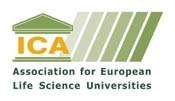The network to support the implementation of the EU strategy for the Danube region
The network to develop joint research, educational and other projects (e.g. joint curricula, know-how transfer)
The network to strengthen research, educational and university development in the Danube region



